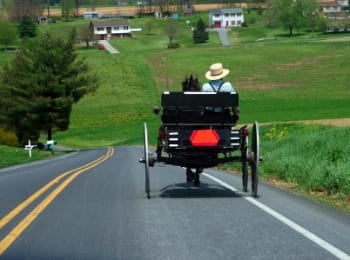
A good diet and plenty of exercise are important for maintaining a healthy weight, but they’re not the whole story. Studies have shown that there’s a substantial genetic component to body mass index. Research published today in Archives of Internal Medicine demonstrates, however, that in people with a genetic predisposition for obesity, DNA is not necessarily destiny.
Scientists studying about 700 Old Order Amish men and women in Pennsylvania found that SNPs in a gene called FTO were associated with being obese or overweight. These associations, however, applied only to people with low physical activity levels. In people categorized as highly active for their age and sex, their FTO variants didn’t make a difference.
The high and low activity groups differed by about 900 kcal/day in their energy expenditures — the equivalent of three or four extra hours of moderately intensive physical activity like brisk walking, house cleaning, or gardening. While this might seem like a lot of activity, the authors point out that it’s typical for the lifestyle of the Old Order Amish, who farm without the aid of modern machinery.
Additional research is needed to determine the lower bound of how much exercise is really needed to negate the effect of an FTO-related genetic predisposition to weight gain. And then comes the hard part — figuring out exactly how the FTO gene influences weight and why physical activity seems to modulate its effect.



